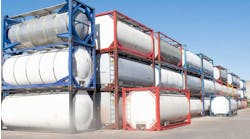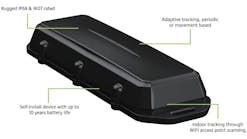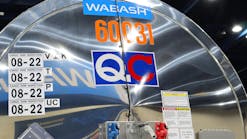WHAT is the tank wash's role in helping motor carriers under Compliance, Safety, Accountability (CSA)?
National Tank Truck Carriers convened a panel to discuss the CSA issue during the Tank Cleaning & Environmental Council annual seminar June 4-5 in New Orleans, Louisiana. Panelist comments included the following:
-
Gene Patten, the Dana Companies.
“In 2010, we were notified that New Jersey became the test state and we also were a test carrier. Two months later, we were notified by DOT that they wanted to come in for a compliance review. Four weeks later, they were done, and we had maintained our satisfactory safety rating. That was after 18 years of not having a compliance review.
“But there were some finds we were able to take away. It's not rocket science, but the worst use of a driver's time is sitting on a wash rack, waiting to be cleaned out. There's not a benefit to the driver. It increases driver turnover. So we started looking at ways to take the peak hour and push as much of that to overnight. We talked to several customers about the need to allow us to drop trailers on site and let them free load it, and we'll come back and get it. That way we turned it into drop-and-hook. At the time, we had 65% of that going on. A recent survey showed it's as high as 75% at a lot of locations, and some at 95%. We're down to less than 5% of drivers waiting to get their trailers cleaned.
“That's only because the resources are not always there. We have no other choice but to have the guy wait for a trailer to be cleaned out. We know when there's not a Dana facility around that we go to another rack, and it could take four hours on average. Sympathizing with carriers, we try to work with them as much as possible. Some will give us an email list or a fax list, telling us what time the trailer is coming in, and we work with that schedule. That will not necessarily increase the number of drivers we have, but will keep them from leaving us.
“We also created a base of local drivers in every terminal who could go out and do pre-loads, so when the line-haul guys are coming in, up to 95% of the time they're going to get a pre-load shipment to take out with them. We also have a lot of tank-wash operations with wash-rack personnel trained to look at equipment when it's in there so they can spot low tread, bald tires, or possibly a leaking seal or bad gaskets. We have now both cargo-related BASICs reducing and also driver BASICs for fatigue coming down.”
-
Steve Niswander, VP of safety and regulations for Groendyke Transport.
“Florida used to have a trooper down there that was Godzilla. He was cutting gaskets like crazy. If they're not leaking, leave the thing alone. Quit pounding on it. Some of that has not come on deaf ears. They are looking at it.
“Holes between the bulkhead don't need to have plugs in them. Troopers out there — what's left of them, and those that haven't been kicked out because there's not enough money to pay for them — are cognizant of the discussions at CVSA (Commercial Vehicle Safety Alliance). One of the things that came up during CVSA meetings was placarding.
“I told a trooper from Ohio, “You want to know what happens on a placard? A driver comes into the shop and has a bad placard. They take it off and put on a new one. He now has three bad placards. Now he has 15 points.' He said, ‘You're kidding me?’ I said, ‘What does a trooper have to compare it against? The new placard that they just stuck on the front of the trailer. So if you're going to do that, I'd suggest you get cards to see if the placard is faded.’ He said, ‘Well, don't put only one placard on. Put on four.’
“That's the kind of stuff that is kicking us on CSA, and you guys at the wash racks need to be aware of it. We're bringing it up with CVSA every time we go to their meetings.”
-
Randy Vaughn, vice-president of administration for Superior Bulk Logistics.
“We're seeing more and more since they changed regulations on cargo and spilling. It really affects the carrier. In the last six months, we have had four violations where we were stopped and it turned out to be nothing but water. But they had seen the condensation there and put the driver out of service because in their opinion, you've got a leak. So each time we've had to call out the contractor. They do a complete test, and it's nothing but water. But you have new troopers out there, and all they see is condensation. They're climbing up on the top on the dome area. It's condensation, it came from the tank wash, or it's been raining. That's happened four different times.
“Once you have that, they say you can't leave until you get it fixed. Then you have a driver sitting out there. And it's going to be on your score. So then you have to data-queue it so it's off not only the driver but the carrier. It's a two-part issue. It has to come off the record for both the driver and carrier.”








